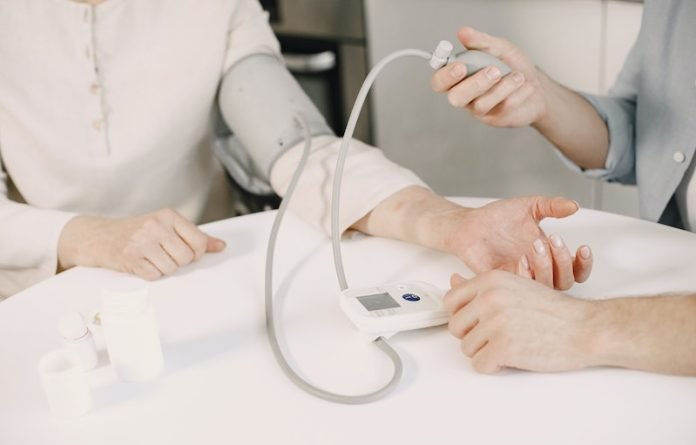
Have you ever heard of high blood pressure?
It’s when your blood pressure is higher than normal. This might sound scary, but there are ways to manage it.
A new study by researchers at the University of California, Davis has found that having high blood pressure in your 30s can lead to worse brain health when you’re around 75 years old, especially for men.
The researchers looked at MRI brain scans of older adults who had high blood pressure between the ages of 30 to 40 and compared them to scans of older adults who had normal blood pressure.
They found that the group with high blood pressure had significantly lower brain volumes and worse white matter integrity.
Both of these factors are associated with dementia, which is a condition that affects the brain and makes it hard for people to remember things or think clearly.
The researchers also found that the negative changes in some regions of the brain were stronger in men. This might be because of the protective benefits of estrogen before menopause.
However, both men and women with high blood pressure had a big reduction in cerebral gray matter volume.
The study shows that high blood pressure is a common and treatable risk factor for dementia. If you have high blood pressure, it’s important to manage it to reduce your risk of developing dementia.
This study indicates that hypertension status in early adulthood is important for brain health decades later.
The Centers for Disease Control and Prevention estimates that 47% of adults in the United States have hypertension, which is why it’s important to manage it.
By taking care of yourself throughout your life and maintaining a healthy heart, you can set yourself up for healthy brain aging in late life.
This study is part of a growing body of evidence that shows that cardiovascular risk factors in young adulthood are detrimental to late-life brain health.
If you’re concerned about your blood pressure or brain health, talk to your doctor or a mental health professional for guidance and support.
How to reduce high blood pressure
High blood pressure is a common health issue that can increase the risk of heart disease, stroke, and other health problems.
However, there are steps you can take to help reduce high blood pressure. Here are a few suggestions:
Eat a healthy diet: Eating a balanced diet that includes plenty of fruits, vegetables, whole grains, lean protein, and healthy fats can help lower blood pressure. Limit your intake of processed foods, sodium, and saturated and trans fats.
Get regular exercise: Physical activity can help lower blood pressure and improve overall health. Aim for at least 30 minutes of moderate exercise most days of the week.
Maintain a healthy weight: Being overweight or obese can increase the risk of high blood pressure. Losing weight can help reduce blood pressure and improve overall health.
Manage stress: Stress can raise blood pressure, so finding ways to manage stress, such as meditation, deep breathing, or yoga, can be helpful.
Quit smoking: Smoking can damage blood vessels and increase the risk of high blood pressure. Quitting smoking can help lower blood pressure and improve overall health.
Limit alcohol intake: Drinking too much alcohol can raise blood pressure. If you drink alcohol, do so in moderation.
Take medication as prescribed: If your doctor prescribes medication to help lower your blood pressure, be sure to take it as directed.
By making these lifestyle changes and working with your healthcare provider, you can help reduce your risk of high blood pressure and improve your overall health.
If you care about blood pressure, please read studies about unhealthy habits that could increase high blood pressure risk, and plant pigment can strongly reduce blood pressure.
If you care about brain health, please read studies about how the Mediterranean diet could protect your brain health, and blueberry supplements may prevent cognitive decline.
The study was conducted by Kristen M. George et al and published in JAMA Network Open.
Copyright © 2023 Knowridge Science Report. All rights reserved.



